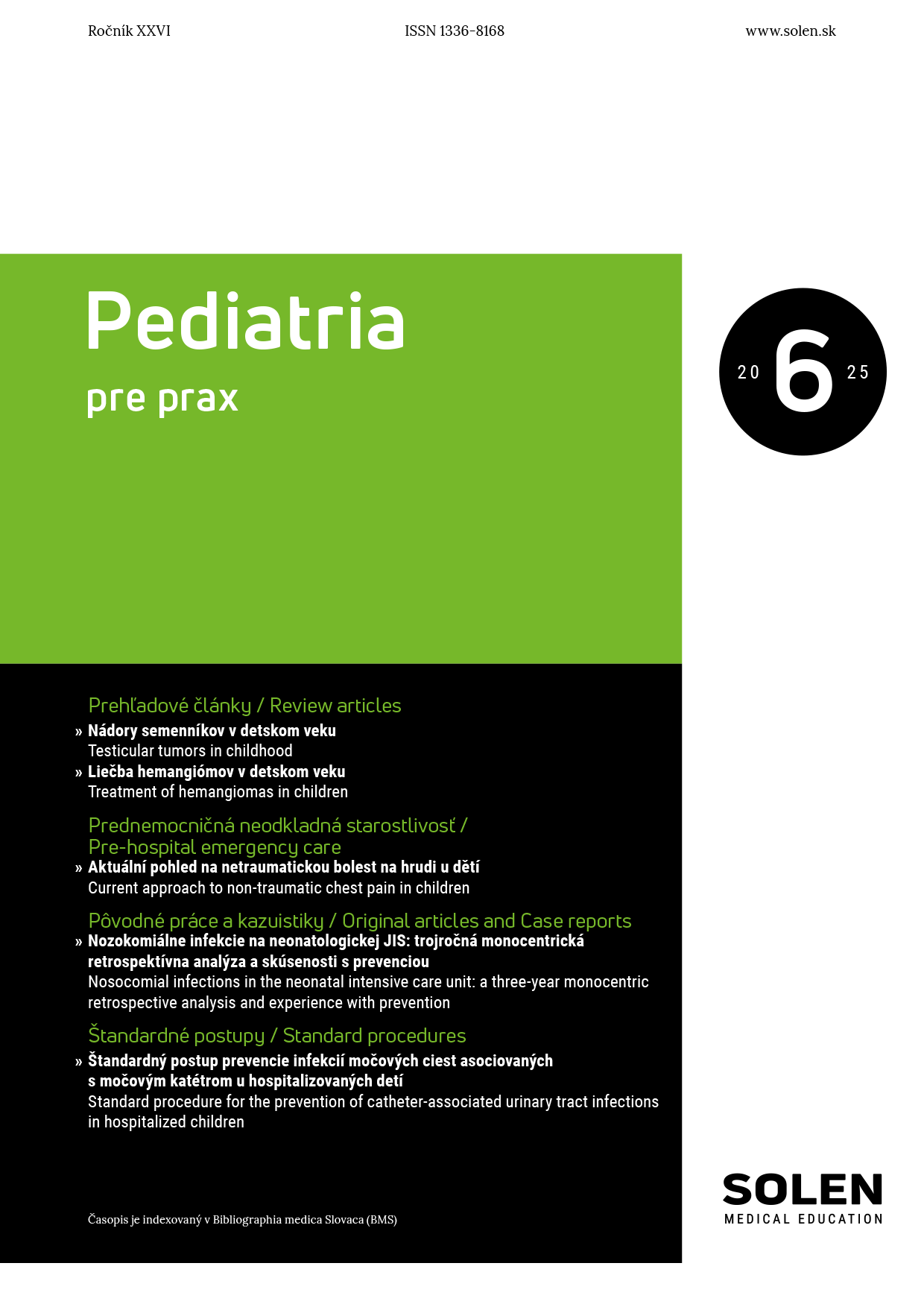Lekárska genetika a diagnostika 2/2025
GLASS syndrome caused by a defect in the SATB2 gene: a pilot study in the Slovak population
Objective/Introduction: GLASS syndrome (SAS syndrome) (ORPHA 576278, OMIM 612313) is classified as an autosomal dominantly inherited monogenic syndromic disorder characterized by developmental delay, intellectual disability, speech development disorder, behavioral disturbances, craniofacial anomalies including abnormalities of the palate and teeth. Syndrome is associated with pathogenic alterations in the SATB2 gene, which can arise through various mechanisms, including point variants (associated with loss of function as well as missense changes), intragenic deletions and duplications, or deletions and translocations that secondarily disrupt the gene. The SATB2 protein performs several important cellular and molecular functions, specifically acting as a transcription factor and chromatin remodeler. In total, 120 unique DNA variants have been described in the literature among 158 individuals from 155 unrelated families. Although all types of pathogenic DNA variants have been reported, the most frequent are point variants leading to the formation of a premature STOP codon (42.5%).
Case: In a child where a neonatologist observed craniofacial dysmorphism (microstomia, retrognathia, cleft of the soft palate, soft parietal bones), arachnodactyly of the upper and lower limbs, we performed a comprehensive genomic analysis using the CES approach through massively parallel sequencing based on a clinical geneticist’s recommendation. We identified a pathogenic insertional frameshift DNA variant c.1534_1535insC in the SATB2 gene. Segregation analysis confirmed a de novo origin of this variant, supposed as unique mutation, not previously described in available scientific literature or databases.
Conclusion: Massively parallel sequencing currently represents an essential tool for early and causal diagnosis in patients with syndromic presentations. Early diagnosis of genetic diseases in such individuals enables targeted clinical follow-up and, consequently, personalized therapy based on current scientific knowledge.
Keywords: GLASS syndrome, SATB2 gene, massive parallel sequencing, clinical exome, case report

















